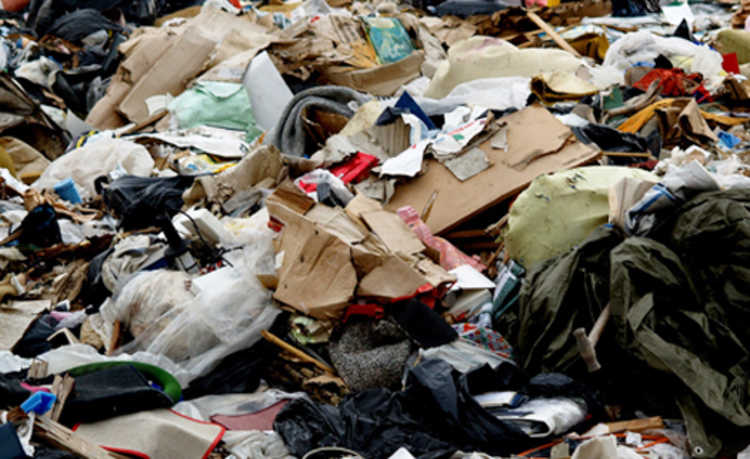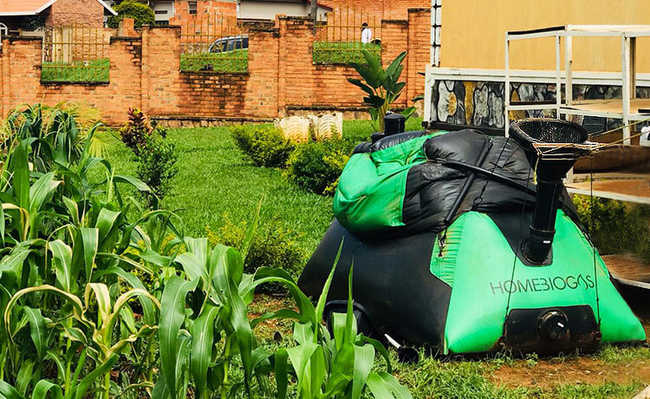Earth Overload Day 2018: We hit the limit this August 1st
Date marks the occasion when the annual demand for natural resources exceeds what the planet can regenerate each year

Image: Ben Purkiss on Unsplash
On August 1st, humanity exhausts the natural resources that the planet is capable of renewing in 2018, according to the Global Footprint Network, an international sustainability research organization that calculates the Ecological Footprint of countries and individuals. Earth Overload Day (Earth Overshoot Day), calculated annually, marks the date from which the consumption of natural resources exceeds the regeneration capacity of ecosystems for that year.
The Ecological Footprint is the biologically productive area necessary to support the needs of an individual or the population of a given region in terms of food, fibers, forest products, carbon sequestration and area for infrastructure. Currently, carbon emissions represent 60% of humanity's Ecological Footprint. Read more about the concept: What is an ecological footprint?
Since planet Earth first went into overload in the early 1970s, Earth's Overload Day has been marked earlier and earlier. In 1997, the date was in late September; in 2015, on the 13th of August, and now in 2018 the day will be on the 1st of August. This means that currently there is a demand 1.7 times greater than the regeneration capacity of ecosystems, that is, annually humanity uses the equivalent resources of 1.7 Earth planets.
All over the world, the damage caused by overload is increasingly evident: deforestation, scarcity of fresh water, soil erosion, loss of biodiversity or accumulation of carbon dioxide in the atmosphere. In turn, these damages accentuate and give rise to phenomena such as climate change, severe droughts, forest fires or hurricanes.
“Today's economies are running a financial pyramid scheme with our planet,” says Mathis Wackernagel, CEO and co-founder of Global Footprint Network. “We are using the Earth's future resources to operate our economies in the present. Like any pyramid scheme, this works for some time. But as nations, companies or families go deeper and deeper into debt, they will eventually collapse.”
"The time has come to end this ecological Ponzi scheme." The time has come to move the date (#MovetheDate). This is critical for humanity to prosper,” added Wackernagel.
#MoveTheDate: moving the date towards sustainability
However, it is possible to reverse this trend. If Earth Overload Day were moved forward 5 days every year to 2050, it would be possible to return to the level where we used the resources of a single planet. To mark Earth Overload Day, the Global Footprint Network suggests a few steps and you can calculate your personal impact on Earth Overload Day change - as well as your personal Overload Day. For example: if 50% of meat consumption is replaced by a vegetarian diet, the date is postponed by 5 days; a 50% reduction in the carbon component of the Ecological Footprint would move the date by 93 days.
Elements of the 2018 campaign
Ecological Footprint Calculator now available in English, French, Italian and Spanish. Allows users to calculate individual Ecological Footprint and personal Earth Overload Day.
For the third consecutive year the Global Footprint Network and its partners invite the audience to explore a set of steps to move the date (“Steps to #MoveTheDate), the global movement that supports humanity's exit from ecological overload.
Systemic changes require individual involvement as well as large-scale mobilization for institutions, from businesses to governments, to work on reducing the burden. The campaign includes a call to action: from raising awareness to friends and family; organizing local events to promote the idea of thriving within planetary boundaries; to contact with rulers; to creating workplace programs to demonstrate what the Ecological Footprint can do.
"At Global Footprint Network We believe that the overuse of the Earth's ecosystems is one of the greatest challenges facing humanity today, and climate change is an important part of that challenge,” concluded Wackernagel. “Transforming our economies to respond to this challenge is not an easy task. However, just as humanity used ingenuity and ingenuity in the past, we can do it again to create a prosperous future free of fossil fuels and planet destruction.”
It is possible to consult the Ecological Footprint results of countries around the world in the data platform: data.footprintnetwork.org.









